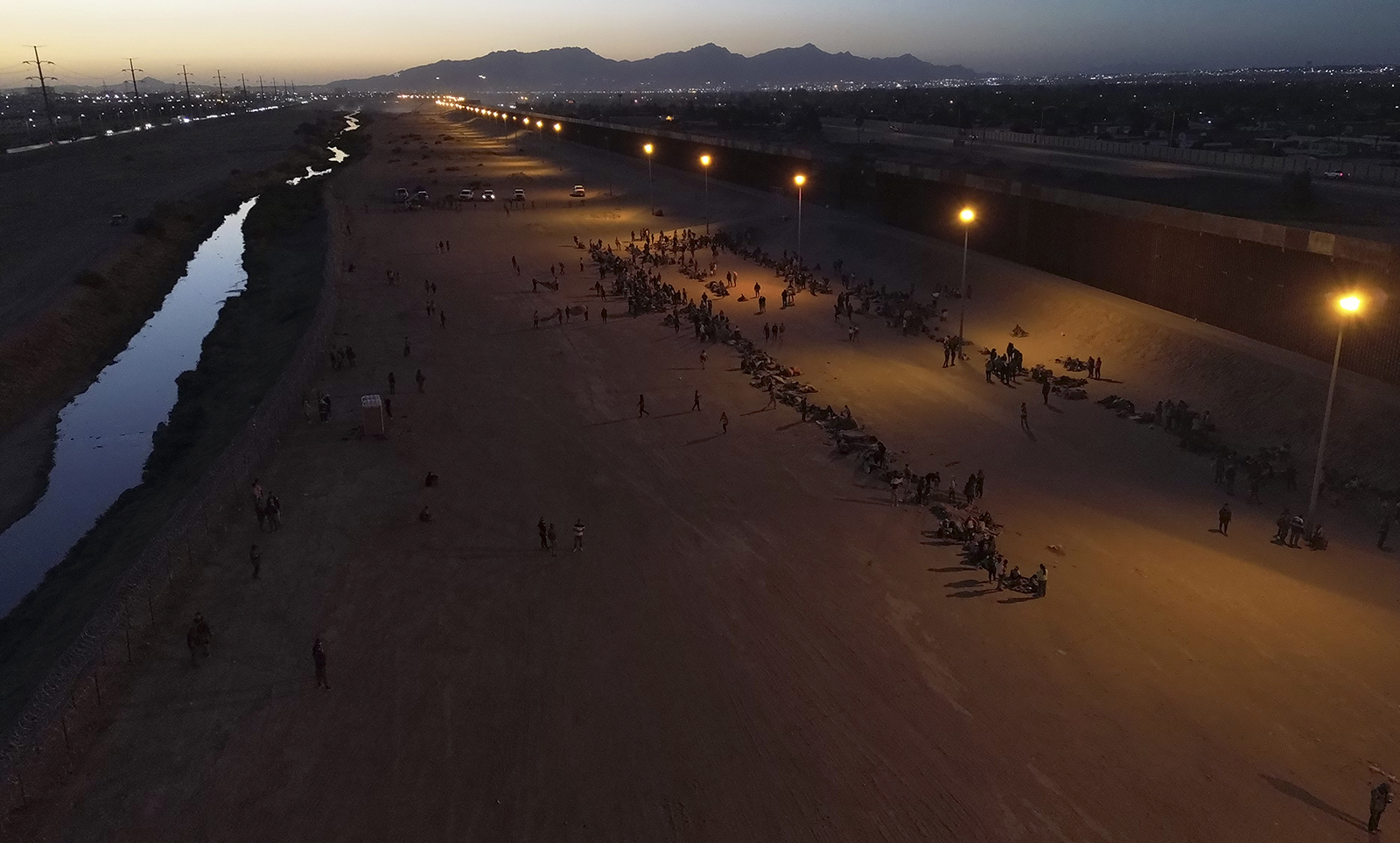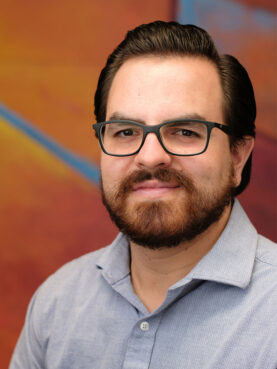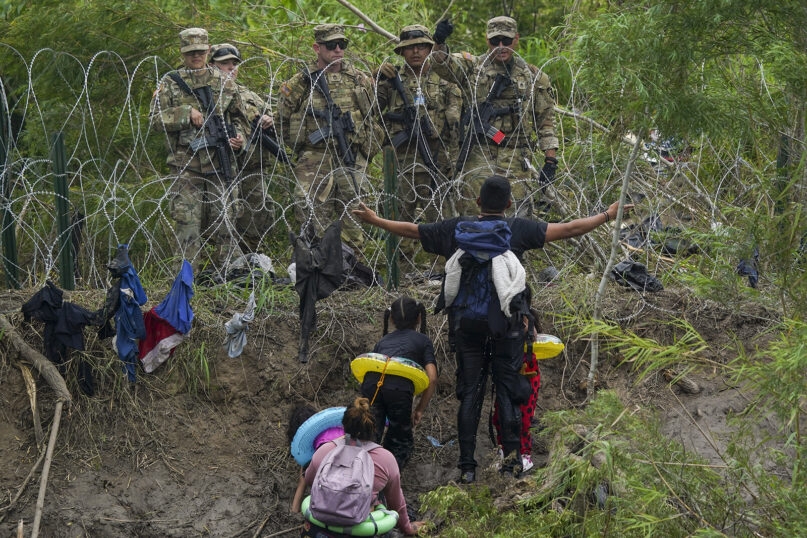(RNS) — Many faith-based refugee agencies have long called for the end of the emergency health rule that allowed the government to quickly expel undocumented immigrants crossing the border.
But now that the rule is expiring at 11:59 p.m. Thursday (May 11), those same faith-based refugee agencies are denouncing the replacement rules announced this week by the Biden administration, which they say would basically ban asylum.
Thousands of migrants are amassing at the Mexico-U.S. border as the emergency public health rule, known as Title 42, ends. The rule, put in place by the Trump administration, allowed border patrol to immediately expel anyone trying to enter the country illegally as a way to prevent the spread of the COVID-19 pandemic. (Previously, migrants applying for asylum could wait in the country — sometimes for years — until their asylum claims were heard by a judge.)
Now that the pandemic has ended, though, the Biden administration has proposed a package of new rules intended to better manage the surge of migrants at the southern border.
Chief among those new rules is one that rejects asylum claims for most people who cross the border but do not first seek asylum in Mexico. The rule will go into effect Tuesday.
The new asylum rule is similar to one put in place by the Trump administration and refugee agencies say it would deprive people of due process under the law.
“Our values oppose any ban that would impact the ability for people seeking protection at our border to access that protection meaningfully,” said Jill Marie Bussey, director for public policy at the Lutheran Immigration and Refugee Service, one of 10 agencies that partner with the State Department to manage the reception and placement of refugees. Seven of those 10 agencies are faith-based.

Migrants wait for U.S. authorities, between a barbed-wire barrier and the border fence at the U.S.-Mexico border, as seen from Ciudad Juarez, Mexico, May 10, 2023. (AP Photo/Christian Chavez)
Refugee agencies such as LIRS and HIAS, the Hebrew Immigrant Aid Society, as well as Church Relief and Church World Service — all of which provide case management and assistance to refugees, some of whom are asylum-seekers — say the new rule violates federal law and they anticipate it will be challenged in court.
RELATED: Faith leaders and religious groups voice opposition to Biden’s plan to restrict asylum
“As a Jewish humanitarian organization that has spent more than a century helping people fleeing persecution, we agree with Secretaries (Antony) Blinken and (Alejandro) Mayorkas that our asylum system should be ‘safe, orderly and humane,’” said HIAS President and CEO Mark Hetfield in a statement. “However, those can be nothing more than buzzwords when access to asylum in this country is shrinking, even as pathways to resettlement are increasing.”
Americans are divided on immigration and refugees, a March poll by The Associated Press-NORC Center for Public Affairs Research showed. About 40% of U.S. adults say the level of immigration and asylum-seekers allowed in the country should be lowered, about 20% say they should be higher and about a third want the numbers to remain the same.
The Biden administration has taken some steps to welcome migrants. It created a parole program that offers two-year permits for up to 30,000 Venezuelans, Haitians, Cubans and Nicaraguans a month. And it has allowed some 300,000 Ukrainians who have arrived in the United States fleeing war with Russia, provided they have a private sponsor to take responsibility for them.
The Biden administration’s new asylum rule may be a response to pressures from the Republican Party to keep the surges of migrants at the border under control.
The asylum rule was not the only new policy targeted by the faith-based refugee agencies. They don’t like the introduction of a smartphone app to process asylum claims at the U.S. border. Such an app may be difficult to access for people unfamiliar with the technology or the languages it uses or unable to pay for a smartphone.
LIRS, which describes itself as the largest faith-based agency serving immigrants, asylum-seekers and refugees, said these policies keep the agency from carrying out its mission.
“People of faith are called by their values and their faith traditions to welcome and support asylum-seekers,” said Bussey. “When we see our siblings struggle, as a faith-based organization we’re called by the gospel to stretch out our hand in solidarity.”
RELATED: In NC, a church network turns unused church buildings into homes for refugees
In announcing these restrictions, the Department of Homeland Security and the Department of State said they “have a robust plan to humanely manage the border through deterrence, enforcement, and diplomacy.”

Dylan Corbett. Photo via Twitter
But to Catholic activist Dylan Corbett, Biden’s new border policy “is dressed in the neutral language of incentives and disincentives.”
“It is a major blow to U.S. commitment to asylum, an unforced error by a Democratic administration that will be hard to repair, and will result in pain and death,” said Corbett, executive director of Hope Border Institute, on Twitter.
The El Paso-based Hope Border Institute has offered humanitarian aid in Juarez, Mexico, through the Border Refugee Assistance Fund, a joint initiative with El Paso Bishop Mark J. Seitz. The fund has financially assisted churches and other groups helping migrant families by offering them food, clothing and shelter.
“As Pope Francis said when he visited us, we don’t measure (as does the White House) the impacts of bad policy in ‘numbers and statistics’, but ‘with names, stories and families.’ No more death. No more exploitation,” Corbett said.
Under the new rules, migrants who are caught crossing illegally and without having scheduled an appointment at a port of entry could be deported and barred from the U.S. for five years “and subject to potential criminal prosecution for repeated attempts to enter unlawfully.”
“This is just the new way of restricting access to asylum,” said Pedro De Velasco, director of education and advocacy of Kino Border Initiative, a Catholic group that advocates and provides humanitarian assistance for migrants in Nogales, Arizona, as well as in Nogales across the border in Mexico.

Pedro De Velasco. Photo via Kino Border Initiative
These restrictions will only benefit human smugglers who are telling migrants they can get them to the U.S. — once they pay a fee — now that Title 42 is coming to an end, De Velasco told RNS.
That’s misleading, De Velasco said, because smugglers will have migrants illegally cross through a remote area, which can lead to their subsequent deportation to Mexico or their home country.
“We’re trying to fight this misinformation, publicly telling asylum-seekers (to) beware of human smugglers,” he said.
De Velasco said migrants are being forced out of their countries due to violence, political crisis, economic reasons and climate change. The longer the federal government continues “to see migration as a problem that needs to be solved, that’s all that it’s going to be,” De Velasco said.
But, he added, “if we start seeing the opportunity, if we start to see migration as our brothers and sisters that need and deserve to be welcomed, this whole situation is going to change.”
“That’s what our faith is about. Our faith teaches us to welcome the stranger,” De Velasco said.





